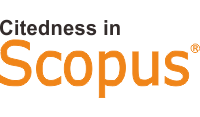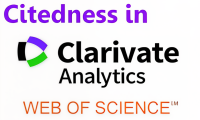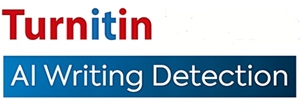PUBLICATION ETHICS AND MALPRACTICE STATEMENT
Milkiyah: Jurnal Hukum Ekonomi Syariah is committed to the highest publication standards. The prevention of publication malpractice is one of the important responsibilities of the editorial board. The Code describes the “Milkiyah: Jurnal Hukum Ekonomi Syariah” policies for ensuring the ethical treatment of all participants in the peer review and publication process. Milkiyah's Editors, Guest Editors, Reviewers and Authors are encouraged to study these guidelines and address any questions or concerns to the editorial team.
Actually, the statement is based on COPE's Best Practice Guidelines. These state that you must:
a) Include anyone who has made a substantial and meaningful contribution to the submission (anyone else involved in the paper should be listed in the acknowledgements).
b) Exclude anyone who hasn’t contributed to the paper, or who has chosen not to be associated with the research.
In accordance with COPE’s position statement on AI tools, Large Language Models cannot be credited with authorship as they are incapable of conceptualising a research design without human direction and cannot be accountable for the integrity, originality, and validity of the published work.
Editorial Teams
Editor/Guest Editor(s) are responsible for the journal's content and for ensuring the integrity of all work published in it.
- Publication Decisions: The Editor/Guest Editor(s) have the right to decide whether to accept or reject a manuscript concerning the significance, originality, and clarity of the manuscript and its relevance to the journal.
- Anti-plagiarism: the Editor scans any submitted article with Turinitin software to detect similarities and potential plagiarism.
- Review of Manuscripts: “Milkiyah: Jurnal Hukum Ekonomi Syariah” follows a double-blind review process, whereby Authors do not know Reviewers and vice versa. The Editor/Guest Editor(s) are responsible for securing timely, independent and anonymous peer review from suitably qualified reviewers who have no disqualifying competing interests of all manuscripts submitted to the journal. In addition, the Editor/Guest Editor(s) are responsible for ensuring that the journal has access to an adequate number of competent reviewers. The journal will acknowledge reviewers at the end of each year. Reviewers’ list is public on the journal website.
- Fair Review: The Editor/Guest Editor(s) and their editorial staff must ensure that each manuscript received by Milkiyah is reviewed for its intellectual content without regard to sex, gender, race, religion, citizenship, etc. the authors.
- Confidentiality of submitted material: The Editor/Guest Editor(s) and the editorial staff will ensure that systems are in place to ensure the confidentiality and protection from misuse of material submitted to the journal while under review and the protection of authors’ and reviewers’ identities and will themselves take all reasonable steps to preserve the confidentiality of authors’ and reviewers’ identities.
- Disclosure: The Editor/Guest Editor(s) should ensure that submitted manuscripts are processed confidentially. No content of the manuscripts will be disclosed to anyone other than the corresponding author, reviewers, as appropriate.
- Conflicts of Interest: The Editor/Guest Editor(s) should excuse themselves from considering a manuscript in which they have a real or potential conflict of interest resulting from competitive, collaborative, financial or other relationships or connections with any of the authors, companies or institutions connected to the manuscript.
- Authority: The Editor in Chief must have ultimate authority and responsibility for the Journal. The Editor-in-Chief should respect the Journal’s constituents (Readers, Authors, Reviewers, Guest Editors, Editorial Staff) and work to ensure the honesty and integrity of the Journal’s contents and continuous improvement in journal quality.
Reviewers
- Fair reviews: Reviewers should evaluate manuscripts objectively, fairly and professionally. Reviewers should avoid personal biases in their comments and judgments, and they should express their views clearly with supporting arguments. Reviewers must provide substantiated and fair reviews. These must avoid the personal attack and not include any material that is defamatory, inaccurate, libellous, misleading, obscene, scandalous, unlawful, or otherwise objectionable, or that infringes any other person’s copyright, right of privacy, or other rights.
- Confidentiality: Information regarding manuscripts submitted by authors should be kept confidential and be treated as privileged information. Reviewers should not discuss the manuscript with anyone other than the Editor/Guest Editor(s), nor should they discuss any information from the manuscript without permission.
- Acknowledgement of Sources: Manuscript reviewers must ensure that authors have acknowledged all data sources used in the research. Any similarity or overlap between the manuscripts under consideration or any other published paper of which the reviewer has personal knowledge must be immediately brought to the Editor/Guest Editor(s)’s notice.
- Timeliness: If a reviewer feels him/her can't complete the review of the manuscript within the stipulated time, then this information must be communicated to the Editor/Guest Editor so that the manuscript could be sent to another reviewer.
- Right of refusal: Reviewers should refuse to review manuscripts: a) where they have provided written comments on the manuscript or an earlier version to the Author, b) in which they have any conflicts of interest resulting from collaborative, financial, institutional, personal, or other relationships or connections with any of the companies, institutions, or people connected to the papers.
- Complaint: Any complaint relating to the journal should, in the first instance, be directed towards the Editor-in-Chief of Milkiyah.
Authors
- Originality: Authors must ensure that no part of their work is copied from any other work, either authored by themselves or others. The work is original and has not previously been published in whole or substantial part. The author should not submit concurrent manuscripts (or manuscripts essentially describing the same subject matter) to multiple journals.
- Authorship of the Paper: Authorship should be limited to those who have made a significant contribution to the conception, design, execution or interpretation of the reported study. Others who have made significant contribution must be listed as co-authors. The author should ensure that all co-authors have affirmed the final version of the paper and have agreed on its final publication.
- Plagiarism and Self-Plagiarism: All work in the manuscript should be free of any plagiarism, falsification, fabrications, or omission of significant material. Plagiarism and Self-Plagiarism constitute unethical publishing behaviour and are unacceptable. Milkiyah reserves the right to evaluate issues of plagiarism and redundancy on a case-by-case basis.
- Acknowledgement of Sources and Conflict(s) of interests: The author should explicitly indicate all sources supporting the research and declare any conflict(s) of interest.
- Data Access and Retention: The author should provide raw data related to their manuscript for editorial review and retain such data.
- Timeliness: Authors should be prompt with their manuscript revisions. If an Author cannot meet the deadline given, the Author should contact the “Milkiyah: Jurnal Hukum Ekonomi Syariah” Managing Editor as soon as possible to determine whether a longer time period or withdrawal from the review process should be chosen.
- Fundamental Errors in Published Works: The author should promptly inform the Editor/Guest Editor(s) of any obvious error(s) in his or her published paper and cooperate earnestly with the Editor-in-Chief in retraction or correcting the paper. If the Editor-in-Chief is notified by any party other than the author that the published paper contains an obvious error, the author should write a retraction or make the correction based on the medium of publication.
Policy Statement
The Editorial members understand that the authors have worked carefully preparing manuscripts, and we have carried out peer-review processes. However, sometimes there is the potential for published articles to be withdrawn or deleted due to scientific reasons. It should not be done lightly and can only occur under certain circumstances. Therefore, corrections, clarifications, retractions, and apologies (if necessary) will be carried out with strict standards to maintain confidence in the authority of its electronic archives. Our commitment and policy are to maintain the integrity and completeness of important scientific records for researchers and librarians' archives.
Article Retraction
MILKIYAH is committed to playing its part in maintaining the integrity of the scholarly record. Therefore on occasion, this journal is necessary to retract articles. Articles may be retracted if:
First, there is a major scientific error that would invalidate the conclusions of the article. For instance, there is clear evidence that findings are unreliable, either as a result of misconduct (e.g. data fabrication) or honest error (e.g. miscalculation or experimental error).
Second, the findings have previously been published elsewhere without proper cross-referencing, permission, or justification (i.e. cases of redundant publication).
Third, there are ethical issues such as plagiarism (appropriation of another person's ideas, processes, results, or words without giving appropriate credit including those obtained through confidential review of others' manuscripts) or inappropriate authorship.
In order to ensure that retractions are handled according to publication best practice, this journal adopts the following retraction process.
First, an article requiring potential retraction is brought to the attention of the journal editor.
Second, the journal editor should follow the step-by-step guidelines according to the COPE flowcharts (including evaluating a response from the author of the article in question).
Third, the final decision as to whether to retract is then communicated to the author and, if necessary, any other relevant bodies, such as the author's institution on occasion.
Fourth, the retraction statement is posted online and published in the next available issue of the journal.
Note: that if authors retain the copyright for an article, this does not mean they automatically have the right to retract it after publication. The integrity of the published scientific record is of paramount importance and COPE’s Retraction Guidelines still apply in such cases.
Article Withdrawal
This journal allows the author to withdraw submitted manuscripts as long as they have not signed the manuscript declaration once the manuscript has been accepted for publication. Because the author would be asked to sign the declaration once the manuscript has been accepted, the withdrawal can be made only in the submission and review stages. The author can directly send a letter to the journal's email indicating the interest to withdraw the detailed manuscript.
However, it is unethical to withdraw a revised manuscript or even the withdrawal after the manuscript is accepted for publication. If this unethical action is made after the manuscript is accepted, the author and his affiliates will be blocklisted for publication in this journal for up to 5 years.
Article Correction
This journal should consider issuing a correction if there is a small part of an otherwise reliable publication reports flawed data or proves to be misleading, especially if this is the result of honest error. Also, if the Author or Contributor list is incorrect (e.g., deserving authors have been omitted or someone who does not meet authorship criteria has been included). Corrections to peer-reviewed content fall into one of three categories:
Publisher correction (erratum): to notify readers of an important error made by publishing/journal staff (usually a production error) that has a negative impact on the publication record or the scientific integrity of the article, or the reputation of the Authors or the journal.
Author correction (corrigendum): to notify readers of an important error made by the Authors, which negatively impacts the publication record or the scientific integrity of the article or the reputation of the Authors or the journal.
Addendum: an addition to the article by its Authors to explain inconsistencies, expand the existing work, or otherwise explain or update the information in the main work.
The decision of whether a correction should be issued is made by the Editor(s) of a journal, sometimes with advice from Reviewers or Editorial Board members. Handling Editors will contact the Authors of the paper concerned with a request for clarification, but the final decision about whether a correction is required and if so, which type rests with the Editors.
Article Removal
In a very limited case, this journal may be necessary to remove a published article from our online platform. It will only happen if an article is clearly defamatory, or infringes others’ legal rights, or where the article is, or we have good reason to expect that it will be, the subject of a court order, or where the article, if acted upon, may pose a serious health risk. In such circumstances, while the metadata (i.e. title and author information) of the article will be retained, the text will be replaced with a screen indicating that the article has been removed for legal reasons.
















